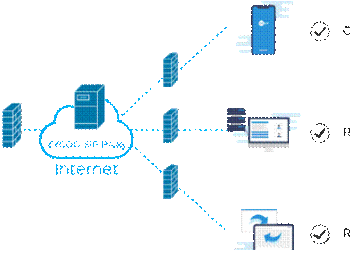In the diverse landscape of financial products, home equity loans stand out as a powerful tool for homeowners seeking additional funds. Particularly in cities like Toronto, where property values continue to rise, leveraging home equity has become an attractive option for many. This comprehensive guide aims to provide an in-depth understanding of home equity loans and the process of acquiring one in Toronto in 2024.
Understanding Home Equity
Home equity refers to the portion of your property that you truly own, calculated by subtracting any outstanding mortgage balance from the current market value of the property. It represents the stake you have in your home and serves as collateral for home equity loans.
Benefits of Home Equity Loans
Home equity loans offer several advantages over other forms of borrowing. These include lower interest rates compared to credit cards and personal loans, larger loan amounts, potential tax benefits, and the ability to consolidate high-interest debt into a single, more manageable payment.
Eligibility Criteria for Home Equity Loans
To be eligible for a home equity loan Toronto, homeowners must fulfill certain prerequisites. These criteria encompass several key factors, including possessing a minimum level of equity in their property, maintaining a stable income source, and upholding a favorable credit history.
Additionally, lenders often take into account various property-related aspects, such as its location, condition, and current market value, when assessing loan applications. It’s essential for prospective borrowers to understand and meet these eligibility requirements to increase their chances of securing a home equity loan in Toronto.
Types of Home Equity Loans
There are two primary types of home equity loans: traditional home equity loans and home equity lines of credit (HELOCs). Traditional home equity loans provide a lump sum payment upfront, while HELOCs function more like a credit card, allowing borrowers to withdraw funds as needed, up to a predetermined limit.
How to Apply for a Home Equity Loan
The application process for a home equity loan involves several steps. First, homeowners must assess their equity position by obtaining a current appraisal of their property. They then research potential lenders, comparing interest rates, fees, and loan terms. Once a lender has been selected, the homeowner completes an application, providing detailed information about their income, assets, debts, and the purpose of the loan.
Documents Required for Home Equity Loan Application
When applying for a home equity loan, borrowers must provide a variety of documents to support their application. These typically include proof of income, such as recent pay stubs or tax returns, as well as documentation of other assets and liabilities. Additionally, lenders will require a current appraisal of the property to determine its market value and calculate the available equity.
Factors to Consider Before Applying
Before committing to a home equity loan, homeowners should carefully consider various factors. These include the current interest rate environment, the terms and conditions of the loan, and their ability to repay the debt. It’s also important to assess the potential impact of borrowing against home equity on long-term financial goals and overall financial stability.
Risks Associated with Home Equity Loans
While home equity loans offer numerous benefits, they also carry certain risks. Chief among these is the risk of foreclosure if the borrower defaults on the loan. Additionally, borrowing against home equity can increase the homeowner’s overall debt burden and reduce their equity stake in the property, potentially limiting future financial flexibility.
Alternatives to Home Equity Loans
For homeowners who are hesitant to borrow against their home equity, there are alternative financing options available. These may include personal loans, lines of credit, or refinancing existing mortgages. Each option has its own advantages and disadvantages, so it’s important to carefully evaluate each one before making a decision.
Finding the Right Lender in Toronto
Choosing the right lender is crucial when seeking a home equity loan in Toronto. Homeowners should research and compare lenders based on factors such as interest rates, fees, loan terms, and customer service reputation. It’s also important to consider the lender’s experience with home equity lending and their willingness to work with borrowers to find the best possible solution for their needs.
Steps After Approval
Upon approval of the home equity loan application, homeowners must review the loan terms carefully and sign the necessary documents. They should also be prepared to provide any additional information or documentation requested by the lender. Once the loan has been funded, borrowers should use the funds responsibly and make timely payments to avoid defaulting on the loan.
Repayment Options
Home equity loans typically offer a variety of repayment options to suit borrowers’ individual needs and preferences. These may include fixed-rate loans, adjustable-rate loans, or interest-only loans. Borrowers should carefully consider the pros and cons of each option before making a decision, taking into account factors such as their budget, future income prospects, and overall financial goals.
Common Mistakes to Avoid
To ensure a successful borrowing experience, homeowners should be mindful of common pitfalls associated with home equity loans. These may include borrowing more than they can afford to repay, using loan proceeds for non-essential expenses, or failing to maintain adequate insurance coverage on the property. By being proactive and informed, borrowers can avoid these mistakes and make the most of their home equity loan.
Conclusion
In conclusion, obtaining a home equity loan in Toronto can be a valuable financial tool for homeowners looking to access additional funds. By understanding the application process, evaluating eligibility criteria, and considering the associated risks and benefits, borrowers can make informed decisions that align with their long-term financial goals. With careful planning and prudent decision-making, a home equity loan can help homeowners achieve their objectives and secure their financial future.




![7 Best POS Software in the UK [2026 Edition]](https://todaynews.co.uk/wp-content/uploads/2026/02/7-Best-POS-Software-in-the-UK-2026-Edition-360x180.png)






































































